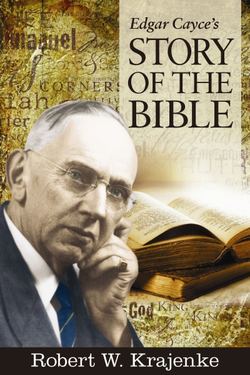Читать книгу Edgar Cayce's Story of the Bible - Robert W. Krajenke - Страница 18
На сайте Литреса книга снята с продажи.
The Divine Image
ОглавлениеIn Genesis 1:27 it is written, “God created man in His own image.” God is Spirit, and therefore the image is spiritual. According to Edgar Cayce, the Divine Image is the soul of man, the Mind and Spirit those aspects of Man which are god-like, individual, and eternal.
For the image in which man was created is spiritual, as He thy Maker is spiritual.
1257-1
For the soul was made in the image of the Creator, to be a companion with that influence which is constructive, which is creative.
1232-1
For as each soul—not the body but the soul—is the image of the Maker, so with the awareness of the soul-consciousness there may come the awakening to the realization of the soul’s relationship with that universal consciousness, as is promised in Him.
2246–1
. . . the soul remains ever as one. For it is in the image of the Creator and has its birthright in Him.
1243-1
This describes the state of man “In The Beginning.”
Man in his former state, or natural state, or permanent consciousness is soul. Hence in the beginning all were souls of that creation, with the body as of the Creator—of the spirit forces that make manifest in using same in the various phases or experiences of consciousness for the activity.
262-89
These two extracts indicate the nature of these pre–Adamic creations:
Some brought about monstrosities, as those of its [that entity’s] association by its projection with its association with beasts of various characters. Hence those of the Styx, satyr, and the like; those of the sea, or mermaid; those of the unicorn, and those of the various forms—these projections of what? The abilities of the psychic forces (psychic meaning, then, of the mental and the soul) . . .
364-10
. . . there . . . were those who were physically entangled in the animal kingdom with [the] appendages, with cloven hooves, with four legs, with portions of trees, with tails, with scales, with those various things that thought forms (or evil) had so indulged in as to separate the purpose of God’s creation of man as man—not as animal . . .
2072-8
